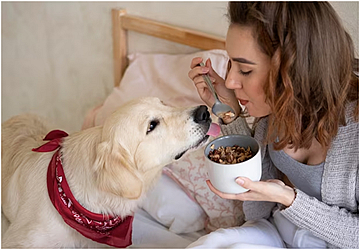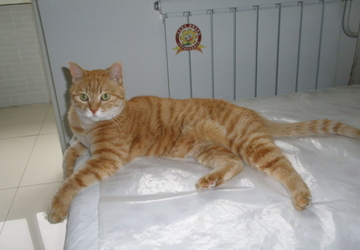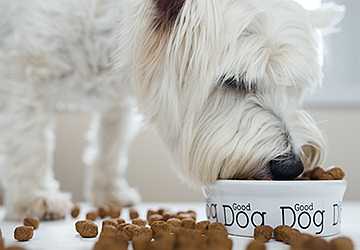Dive into "What to Feed Your Pet: A Comprehensive Guide to Nutrition and Health" to ensure your furry friend receives the best care. Unpack the essentials of pet nutrition and make informed food choices for a healthier pet life.
Every pet owner wants the best for their beloved companion, and nutrition is the heart of that care. But with the myriad of food options available, how does one decipher the best from the rest?
"What to Feed Your Pet: A Comprehensive Guide to Nutrition and Health" is here to demystify pet nutrition, ensuring that your four-legged friend gets the optimum diet tailored to their needs. From understanding ingredient labels to recognizing dietary needs for different life stages, this guide is your roadmap to a healthier and happier pet.

What to Feed Your Pet
Every pet owner knows that their furry, feathery, or scaly friend is more than just an animal; they are part of the family. Hence, it's only natural to want the best for them, especially their diet. After all, a proper diet can be the foundation for a long, healthy life. Understanding pet nutrition and making informed pet food choices can often be the difference between a vibrant, active pet and one that suffers from health issues.
Understanding Pet Nutrition
Pet nutrition is the study of the dietary needs of domesticated animals. Like humans, pets require specific nutrients to function and thrive. These nutrients provide energy, support growth, aid digestion, and protect against disease. However, not all pets have the exact nutritional requirements. What works for a dog might not suit a cat, bird, or reptile.
Key Nutritional Components:
1. Proteins: Fundamental for growth and repair.
2. Fats: Essential for energy and absorption of specific vitamins.
3. Carbohydrates: Provide energy, though in varied quantities depending on the pet.
4. Vitamins and Minerals: Necessary for various bodily functions, from bone health to nerve function.
5. Water: Crucial for every cellular process in a pet's body.
Feeding Guidelines: Age, Size, and Activity Level
Every pet is unique, and so are their dietary needs. The feeding guidelines for a young puppy would differ significantly from those of an elderly cat or a growing parrot. Hence, when choosing a diet, one must consider the pet's age, size, and activity level.
● Puppies and Kittens have different nutritional needs than adult dogs and cats. They require a more protein-rich diet to support their rapid growth.
● Adult Pets: Require a balanced diet to maintain their health. The focus should be on sustaining their health and supporting their activity level.
● Senior Pets: As pets age, their dietary needs shift. They may require fewer calories but more fiber and specific nutrients to support joint health.
Pet Food Choices: Deciphering Labels
One of the daunting tasks for pet owners is navigating the vast world of pet food choices. The variety is immense, and the labels can be confusing. Here's a brief guide to understanding them:
● Ingredients: Listed by weight. Food's first ingredients stand out. A known protein source should be at the top.
● Guaranteed Analysis: This section breaks down the minimum or maximum amounts of specific nutrients in the food, such as protein and fat.
● Feeding Instructions: Provide a recommended serving size based on the pet's weight. However, it's always best to consult with a veterinarian.
Importance of a Balanced Diet
The term balanced diet refers to providing all the necessary nutrients in the correct proportions. An unbalanced diet can lead to both malnutrition and obesity, along with other health problems. For instance, a diet too rich in calcium can affect bone growth in puppies, while too little can lead to bone issues in reptiles.
Tips for Ensuring a Balanced Diet:
● Rotate proteins to provide a variety of amino acids.
● Incorporate both wet and dry foods for dental health and hydration.
● Include natural sources of fiber, like vegetables for dogs.
● Ensure you provide species-specific diets, especially for exotic pets.
Considering Health Conditions
Some pets have unique nutritional needs due to illnesses. A particular diet may be necessary for cats with urinary tract problems to avoid crystal development in the urinary tract. Grain-free or single-protein diets may be necessary for dogs with dietary sensitivities. Dietary changes should only be made after discussion with your veterinarian.
The Dangers of Human Food
There are a lot of human foods that are dangerous for pets to eat, so even while it might be tempting to share a snack with your four-legged pal, you shouldn't. Dogs and cats should never consume chocolate, onions, grapes, or artificial sweeteners. Always use caution, and keep foods intended for people out of their reach.
The Organic and Non-GMO Trend
As the demand for organic and non-GMO products rises in human foods, so does the interest in similar pet options. Organic pet foods use ingredients that are free from synthetic fertilizers, pesticides, and genetically modified organisms (GMOs). Some pet owners believe these options are healthier and more digestible. If considering this route, ensure the product still meets all nutritional requirements for your pet.
Understanding Food Allergies in Pets
Common symptoms include skin irritations, ear infections, and digestive problems. If your pet is showing signs of allergies, it's crucial to consult with a vet. They might recommend a specific diet or advise introducing single ingredients to isolate the allergen.
Hydration and Your Pet
Hydration is frequently overlooked in favor of food, yet it is just as important. It's common for pets, especially cats, to consume insufficient water. Their water consumption may need to be supplemented with wet foods. Always provide your pet access to fresh, clean water and make sure it stays clean. A pet's health can be severely compromised by dehydration, which can interfere with digestion, kidney function, and other bodily processes.
Conclusion
In the world of pet health, a proper diet plays a paramount role. Pet owners can ensure their companions lead a happy, healthy life by understanding pet nutrition, adhering to feeding guidelines, offering a balanced diet, and making wise pet food choices. The bond between a pet and its owner is unique, and by prioritizing their dietary needs, that bond can only grow stronger.














